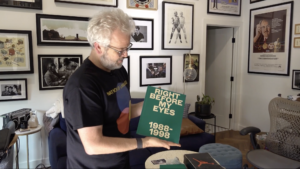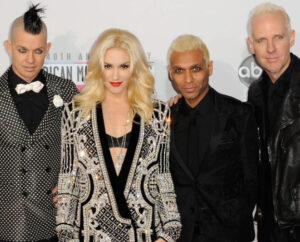The 1990s were a golden era for skateboarding and hip-hop, two subcultures that not only ran parallel but often intersected in profound and creative ways. Both movements thrived on rebellion, individuality, and an unfiltered reflection of the streets, creating a cultural synergy that defined a generation. Among those who captured this dynamic time was filmmaker and storyteller Jacob Rosenberg. His work in skateboarding and his ties to hip-hop culture have made him a custodian of some of the most iconic footage and stories from that era.
Jacob Rosenberg: A Filmmaker Rooted in Skateboarding Culture
Jacob Rosenberg’s love for filmmaking began in his teens when he started capturing skateboarding videos. Born in Southern California, he grew up during a time when skateboarding wasn’t just a sport; it was a way of life. It was an era when skate videos were the lifeblood of the culture, showcasing the latest tricks, styles, and music that defined the community.
Rosenberg’s early work with skateboarding brands like Plan B Skateboards helped shape the visual identity of skate culture in the ‘90s. As the filmmaker behind some of the most memorable skate videos of the time, he wasn’t just filming tricks; he was capturing a lifestyle. These videos became essential viewing for skaters, combining high-energy visuals with cutting-edge soundtracks, many of which were heavily influenced by hip-hop.
The Intersection of Skateboarding and Hip-Hop
In the ‘90s, skateboarding and hip-hop found common ground in their shared ethos of rebellion, creativity, and individuality. While punk rock had been the soundtrack for skateboarding in the ‘80s, the ‘90s saw a shift as skaters began to embrace the beats, rhythms, and lyrics of hip-hop.
Artists like A Tribe Called Quest, Wu-Tang Clan, and Nas provided the soundtracks to skate videos, their music blending seamlessly with the raw energy of skateboarding. Hip-hop culture’s emphasis on storytelling, style, and breaking boundaries resonated deeply with the skateboarding community, which thrived on pushing physical and creative limits.
Rosenberg, with his finger on the pulse of both cultures, documented this intersection with authenticity. His skate videos weren’t just montages of tricks; they were time capsules of the era, capturing the aesthetics, fashion, and music that defined the youth culture of the ‘90s.
Unearthing the Footage: A Cultural Treasure Trove
Jacob Rosenberg’s archives are a treasure trove of raw, unfiltered footage that encapsulates the essence of the ‘90s skateboarding and hip-hop scenes. Revisiting this material is like stepping into a time machine, offering a glimpse into an era that was both gritty and groundbreaking.
Skateboarding’s Evolution in the ‘90s
The ‘90s were a transformative time for skateboarding. The decade saw the emergence of street skating as a dominant force, with skaters taking their tricks from ramps and bowls to urban environments. Rosenberg’s footage captures this transition, showcasing pioneers like Rodney Mullen, Mike Carroll, and Daewon Song redefining what was possible on a skateboard.
Skateboarding in the ‘90s was marked by innovation, and Rosenberg’s work reflects that. His ability to highlight not just the tricks but the personalities and stories behind the skaters helped elevate the sport into an art form.
Hip-Hop’s Influence on Skate Culture
Rosenberg’s footage also showcases the growing influence of hip-hop on skateboarding culture. From the baggy pants and snapbacks worn by skaters to the beats blasting in the background of skate sessions, hip-hop was more than just a soundtrack—it was a lifestyle.
Classic tracks like Gang Starr’s “Mass Appeal” or Mobb Deep’s “Shook Ones Part II” provided the backdrop for countless skate videos, creating an inseparable bond between the two cultures. Rosenberg’s work captures this connection, documenting the moments when skateboarding and hip-hop collided to create something uniquely ‘90s.
The DIY Ethos
One of the defining features of both skateboarding and hip-hop in the ‘90s was their DIY ethos. Skateboarders built their own ramps, filmed their own videos, and created their own brands, while hip-hop artists sampled beats, recorded tracks in home studios, and self-released albums.
Rosenberg’s approach to filmmaking mirrored this ethos. Armed with a camera and a passion for storytelling, he documented the culture in its rawest form. His footage is a testament to the power of creativity and resourcefulness, capturing a time when the most impactful art was created outside the mainstream.
The Importance of Revisiting ‘90s Skate and Hip-Hop Culture
Unearthing Jacob Rosenberg’s ‘90s footage is about more than just nostalgia; it’s about preserving the legacy of two cultures that shaped a generation.
Celebrating the Innovators
The skaters and hip-hop artists of the ‘90s were pioneers who laid the groundwork for the cultural landscapes we see today. Revisiting their work not only honors their contributions but also provides inspiration for the next generation of creators.
Understanding Cultural Synergy
Rosenberg’s footage highlights the profound connection between skateboarding and hip-hop, showing how these two movements influenced and elevated each other. Understanding this synergy provides valuable insights into how subcultures can intersect to create something greater than the sum of their parts.
Inspiring Future Creators
The DIY spirit of the ‘90s continues to resonate with creators today. By revisiting the era through Rosenberg’s lens, young filmmakers, skaters, and musicians can find inspiration in the resourcefulness and creativity of those who came before them.
Jacob Rosenberg’s Enduring Legacy
Today, Jacob Rosenberg’s work serves as a bridge between the past and the present. As a filmmaker, he has continued to evolve, working on documentaries, commercials, and other projects that reflect his passion for storytelling. However, his contributions to skateboarding and hip-hop culture in the ‘90s remain some of his most impactful work.
Rosenberg’s ability to capture the energy, innovation, and authenticity of the era has made his footage a vital part of the cultural archive. By unearthing and sharing this material, he ensures that the stories, sounds, and styles of the ‘90s continue to inspire and resonate with new audiences.
The Timeless Impression of ‘90s Skate and Hip-Hop Culture
The 1990s were a defining decade for skateboarding and hip-hop, two movements that revolutionized youth culture and left an indelible mark on the world. Jacob Rosenberg’s work as a filmmaker and documentarian captures the essence of this era, preserving its energy, creativity, and spirit for future generations.
Unearthing his footage is a reminder of the power of subcultures to shape society, challenge conventions, and inspire change. It’s a celebration of the skaters, musicians, and filmmakers who dared to be different and created something extraordinary in the process.
As we revisit the ‘90s through Rosenberg’s lens, we’re not just looking back; we’re finding new ways to connect with the timeless ethos of creativity, individuality, and rebellion that defined the era. Whether you’re a skater, a hip-hop fan, or simply someone who appreciates the magic of cultural innovation, Jacob Rosenberg’s work offers a window into a world that continues to inspire and captivate.
No comments yet.









